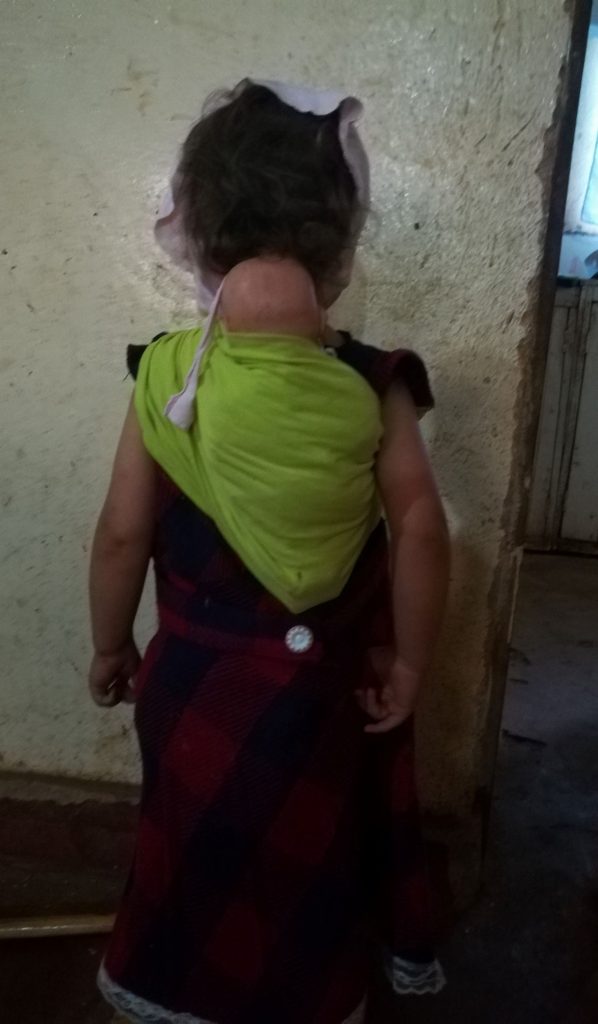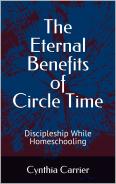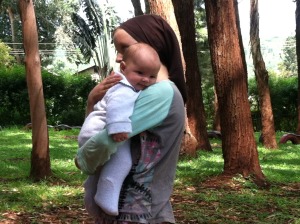
As a young mother, I wanted to be effective and productive and “make the most of every opportunity” in raising my children in the nurture and admonition of the Lord. Once we had more than a few children and began homeschooling, feelings of overwhelm crept in regularly, I turned to a schedule to try to get more done with less angst. Without naming names, I tried implementing a scheduling method (popular at the time) that promised the productivity and peace that I was hoping for.
However, the schedule turned into more of a task-master than I had anticipated, leading to more stress, rather than less. I began to look at routines and focused on putting some predictable and priority elements in place that would help me to put “first things first.”
An essential complement to our daily routines has always been my “to-do list,” which I typically set out (at least mentally) each morning. With age and forgetfulness, writing down has become increasingly more important. Of course, with years and advancing technology, my to-do list has largely turned digital. Perhaps like me, you scribble in the daily essentials and then, when you find you’ve done something extra, you pencil it in at the bottom just so you can have the inner satisfaction of crossing it off.
Until just this week, I’ve been using a simple Notepad app. However, it came to my attention that a couple of my daughters have fallen in love with the 1-3-5 To-Do List, which helps you prioritize by selecting one “big” task, three “medium” tasks, and five “small” tasks for each day. I’ve been trying to use it, and I find that even though it sounds good (in theory) and is really not a whole lot different than a regular to-do list, it’s been creating some low-level stress in my life.
For one thing, it has caused me to think about the amount of time I spend on typical daily tasks. And if I think about one “large” task taking me 1-2 hours, three “medium” tasks” taking about least 30 minutes each, and five “small tasks” taking 15-20 minutes each, that is roughly anywhere from 3 to 5 hours per day. Going into the day thinking about that many hours of work to get done (and having to work those hours around the typical activity level and interruptions associated with a busy household) puts the pressure on almost from the get-go.
Another problem is, my “tasks” tend to be work-related or productivity-oriented (such as making and canning a large batch of pasta sauce), rather than actual priority tasks (like going through a new Bible study with my teen/adult girls, which I have been putting off for much too long, but which is very important to me). So I guess I need to figure out how to balance this out and include more tasks that don’t have any “visible” benefit at the end of the day.
And maybe it’s just me, but the 1-3-5 method just seems to have less “flex” than a random checklist. I wouldn’t worry about nudging something on my notepad over into another day if the tyranny of the urgent took over and it didn’t get crossed off. But when I have a “big” task that just isn’t going to get done because 5 unplanned “little tasks” totally sucked up my available time, well, it feels a little more stressful not to get it checked off.
Maybe it’s just me, but I’m seeing all over again the importance of prioritizing and having routines, with lists or plans functioning as more of a friend than a foe. As wives/Moms/home managers, we each have to find what works best for us individually: our thought processes, our personalities, our family’s rhythms, etc. So many things work for one person and not another. It’s hard to give a new “thing” your best shot (especially if it’s something you spend money on) and discover that it just doesn’t help you like you had hoped. But when you do find something that IS a good fit, it’s definitely a great feeling.
Here is my prayer for you: Lord, I ask that you would give a spirit of wisdom and revelation to each Mama reading this, as she seeks to make the most of her time and honor you in everything. Let your Spirit be her Helper, as you have promised, and lead her to a place a both productivity and peace. Give her clarity about her priorities in marriage, family, homeschooling, home management, and “ministry.” Help her to be effective and productive and know that you are pleased as she puts you first in everything. Give her peace and freedom in being who you have made her to be.




 I remember being a young Mom of three and sitting in my prayer closet during the wee hours of the morning. I don’t know exactly what I was crying to God about, but that’s what I was doing. And then I opened my Bible to 1 Samuel 30 and read of the distress of David: the Amalekites had destroyed his city and taken his wives and daughters captive, along with the families of all his men. The people talked of stoning him. And what did he do? He “strengthened himself,” or “encouraged himself in the Lord.” (verse 6). What does this mean? This passage doesn’t specify, but if you read the Psalms, you can see it. Even when things were at their worst (perhaps especially so, in fact), David meditated on who God is: the goodness of God; His love; His faithfulness. He remembered how God had worked on his life: rescuing him from his enemies, keeping his promises, working all David’s circumstances for his good and for the fulfillment of God’s purposes. David also, even in his angst, put his hope in God and in His Word. He trusted God and believed He would see God’s goodness. He knew God would be faithful to His Word, so he focused on that rather than on his circumstances. This is what I have tried to train myself to do over the years (though I still have times when I’m not as good at it as I need to be).
I remember being a young Mom of three and sitting in my prayer closet during the wee hours of the morning. I don’t know exactly what I was crying to God about, but that’s what I was doing. And then I opened my Bible to 1 Samuel 30 and read of the distress of David: the Amalekites had destroyed his city and taken his wives and daughters captive, along with the families of all his men. The people talked of stoning him. And what did he do? He “strengthened himself,” or “encouraged himself in the Lord.” (verse 6). What does this mean? This passage doesn’t specify, but if you read the Psalms, you can see it. Even when things were at their worst (perhaps especially so, in fact), David meditated on who God is: the goodness of God; His love; His faithfulness. He remembered how God had worked on his life: rescuing him from his enemies, keeping his promises, working all David’s circumstances for his good and for the fulfillment of God’s purposes. David also, even in his angst, put his hope in God and in His Word. He trusted God and believed He would see God’s goodness. He knew God would be faithful to His Word, so he focused on that rather than on his circumstances. This is what I have tried to train myself to do over the years (though I still have times when I’m not as good at it as I need to be). Blogging when our children were young was easy; there were so many sweet moments I wanted to document. And when there were challenges, they were the small problems of small children (which don’t feel so small when you’re a weary Mom to many Littles, so I don’t say that lightly!) Now that they’re bigger children with bigger problems and there is privacy to protect, it’s hard to know what to say and what not to say in this space. But, I suppose I can talk about me, so if you’d give me the grace to do so, I’d like to share some thoughts as we have just welcomed blessing number 9 to our family, baby Joanna (born in September 2015).
Blogging when our children were young was easy; there were so many sweet moments I wanted to document. And when there were challenges, they were the small problems of small children (which don’t feel so small when you’re a weary Mom to many Littles, so I don’t say that lightly!) Now that they’re bigger children with bigger problems and there is privacy to protect, it’s hard to know what to say and what not to say in this space. But, I suppose I can talk about me, so if you’d give me the grace to do so, I’d like to share some thoughts as we have just welcomed blessing number 9 to our family, baby Joanna (born in September 2015).
